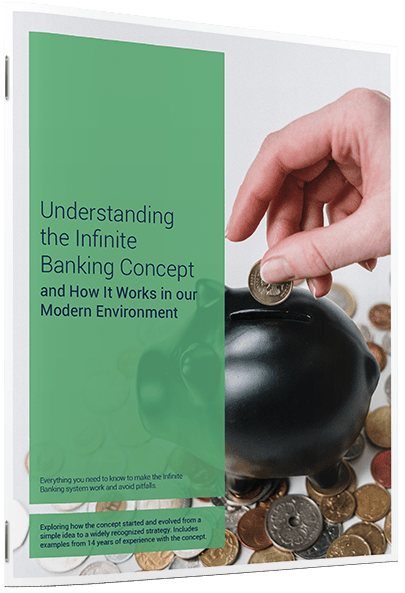702-660-7000
702-660-7000

Nearly seven out of ten people look back at buying their homes and say, “Oops, I wish I hadn’t done that.” Surprising, right? Well, a whopping 68% express regret over their home purchase, mainly because they saw others suffer during the 2008 economic downturn and the following recession, and now they’re like, “Maybe I shouldn’t have jumped into that mortgage.”
In a study conducted by Bank of the West, they found out that after the home-buying remorse, the next big regrets for people were all about money. Coming in at second and third place were “Paying off debt” and “Having enough money to retire without worries.” So, basically, more than half of the folks surveyed are wrestling with debt, and almost half are stressing about whether they’ll have enough cash to live the good life when they retire. Tough times, huh?
It’s kind of ironic that almost one-third of these folks who regret buying their homes actually dipped into their retirement savings to make the down payment. Now they’re looking back and thinking, “Maybe that wasn’t such a great idea after all.” Sadly, their regrets aren’t baseless because, not many places are seeing their home values rise faster than inflation. Only places like Dallas, Denver, and Seattle seem to be keeping up with the inflation game when it comes to home prices.
Now, let’s talk about calling real estate an “asset purchase.” Sure, emotionally, having a home can mean a lot to us. But economically? Well, the value of that piece of property we call home might not match up with what we shelled out for it. Does that make it a bad thing? Not necessarily. Think about it: the cars we drive aren’t worth what we paid for them either, but we still need them to get around, right? And, the food we buy isn’t exactly an investment either. We can’t sell it for what we paid for it, but that doesn’t make it worthless. It’s all about perspective.
The problem isn’t whether real estate is a good investment or not. It’s more about how we’ve been taught what to invest in and what to steer clear of.
Here’s the usual drill:
Step one: Invest your money. You know, buy a house, stash cash in your 401k, maybe dabble in some mutual funds, bonds, or stocks.
Step two: Tackle your debt. Try to pay off that mortgage faster, kick in more than just the bare minimum to your 401k, and keep an eye out for those sneaky credit card fees and interest rates.
Step three: Save whatever you can. Every penny counts.
And finally, step four: Protect what you’ve got. Insurance, rainy day funds, the whole nine yards.
Sounds like a solid plan, right? Well, it can be, if the market is bullish, you have a steady income for life and don’t encounter any of the unexpected curveballs like health crises, divorces or lawsuits. But historically, this is NOT what usually happens.
The market is volatile. Most people change careers 5-7 times during their working life. Those who don’t determine what to save early on, or aren’t disciplined enough to save the amount determined upon, find Parkinson’s Law will prevent them from saving enough. And those who do save, and build a large enough nest egg, all too often see their savings destroyed through tragic events like the market corrections of 2001 or 2008.

Understanding the Infinite Banking Concept and How It Works In Our Modern Environment 31-page eBook from McFie Insurance Order here>
So, here’s a different approach, one that flips the script on the traditional plan. Instead of saving and investing first, focus on protecting what you’ve got. Once that’s sorted, then start saving. This way, you won’t have to worry about the curveballs life might throw your way.
Once you’ve got some savings going, tackle your debts. With this strategy, you’ll free up more cash flow, giving you more flexibility to invest down the road. Speaking of investing, that comes last in this new order of operations. By prioritizing protection and savings first, you’ll build a more solid financial foundation for your future.
Steps to building Financial Security:
Now, let’s focus on safeguarding your most valuable asset and finding the best place to save for maximum benefit. Ever wondered what the big shots in finance use? It’s often Participating Whole Life Insurance. And while you may not be a millionaire or billionaire (yet), what works for these folks can work for you too… just on a smaller scale. Millionaires and billionaire don’t overlook the fact that everything they’ve worked for could vanish in an instant if it’s not protected. A well designed Participating Whole Life insurance policy offers exactly that type of protection along with the guarantee that your money will be available and accessible to you at anytime, for anything. That’s why smart money managers will never tell you Participating Whole Life Insurance is a bad investment.

Get a working knowledge of how each type of life insurance policy works.
After reading this 10-page booklet you'll know more about life insurance than most insurance agents.
Download here>
You might be thinking, “But isn’t life insurance just for when I kick the bucket?” Well, yes and no. When designed well, Participating Whole Life Insurance, can build up some serious cash value right off the bat, giving you access to capital you can use to make life better for those you love right now, and a guaranteed, secure way to save for your future. With this design you get the best of both worlds…a high cash value initially and then later on, when you’re more likely to die, a high death benefit for the ones you love.
So, don’t overlook the power of Participating Whole Life Insurance. It’s not just about planning for the future – it’s about protecting what you’ve got right now and setting yourself up for financial success down the line.
 Dr. Tomas P. McFie
Dr. Tomas P. McFie
Most Americans depend on Social Security for retirement income. Even when people think they’re saving money, taxes, fees, investment losses and market volatility take most of their money away. Tom McFie is the founder of McFie Insurance which helps people keep more of the money they make, so they can have financial peace of mind. His latest book, A Biblical Guide to Personal Finance, can be purchased here.
Get a free quote on Life Insurance Enter ZIP Code to Start »